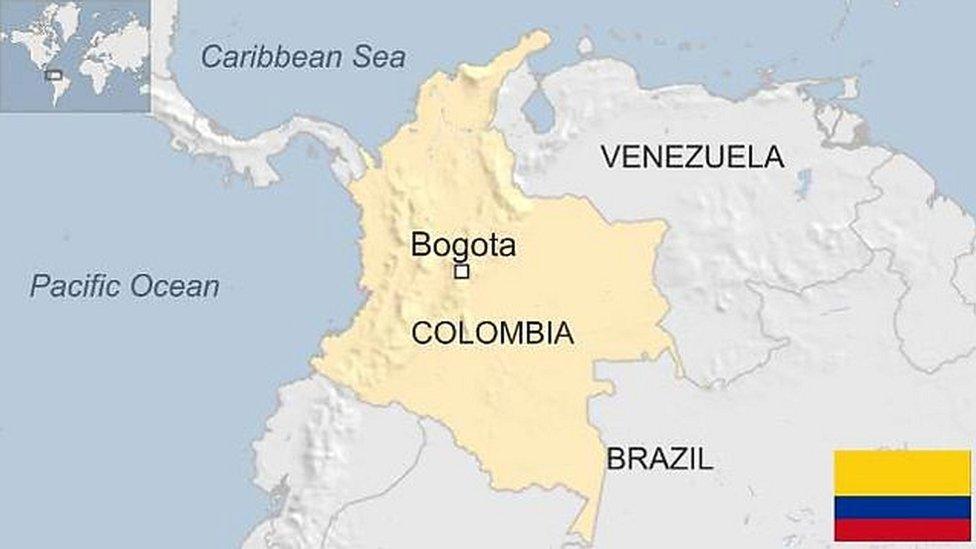Surprise as Colombians shun peace deal
- Published
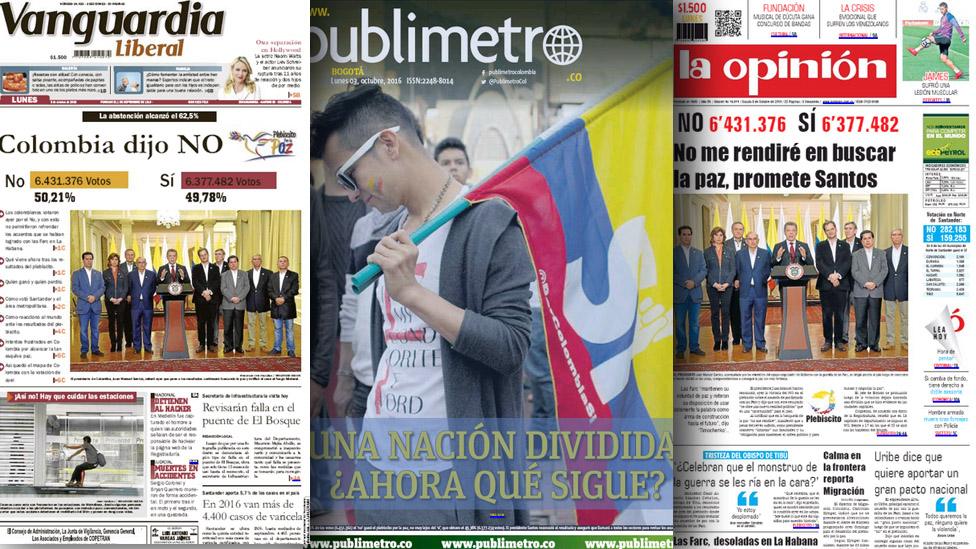
Some "Yes" voters broke into tears after hearing the referendum result, newspapers report
Colombian media expressed surprise that voters rejected a peace agreement with the rebel Farc (Revolutionary Armed Forces of Colombia) rebel group on Sunday.
Newspaper headlines also reflected the uncertainty over the future of the Farc and the peace agreement.
Colombian daily El Tiempo, external wrote: "After the victory of the 'No', Santos calls for political dialogue and peace".
"The president summoned all political parties. Uribe is willing to cooperate in favour of a national pact," El Tiempo said.
El Espectador, external carried a simple but dramatic headline "Noooooooo", alongside a graphic showing how tight the result was.
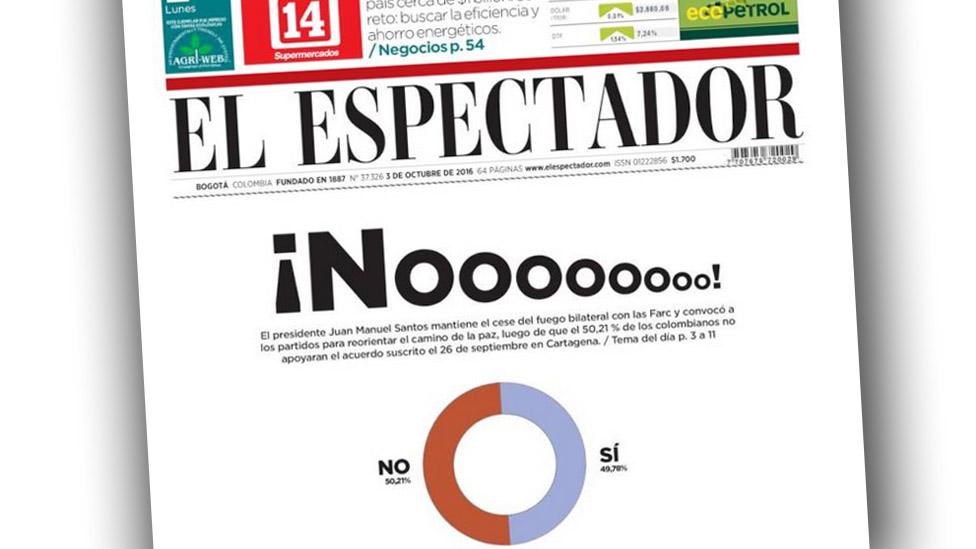
El Espectador summed up its view of the drama of the close vote
"The rejection of the peace agreement almost kills the possibility of the Nobel peace prize," said El Espectador.
The newspaper also carried a story, external under the headline: "Colombians backing the 'Yes' vote heard the result of the plebiscite in tears".
El Pais, external asked: "And now what?"
The Cali-based paper also asked if a Nobel Peace Prize for President Juan Manuel Santos and Farc leader Timochenko was now out of the question: "Does the result kill off the chances of Nobel Peace prize for Colombia?"
El Pais also quoted analysts who the paper said "foresee a gloomy panorama for Colombia after the plebiscite".
"No to the accord," was El Colombiano, external's banner headline, with a picture of Colombian President Juan Manuel Santos and his sombre-faced cabinet reacting to the vote. It reported that the president was seeking a "national dialogue" to tackle the political crisis triggered by the rejection of the peace accord.
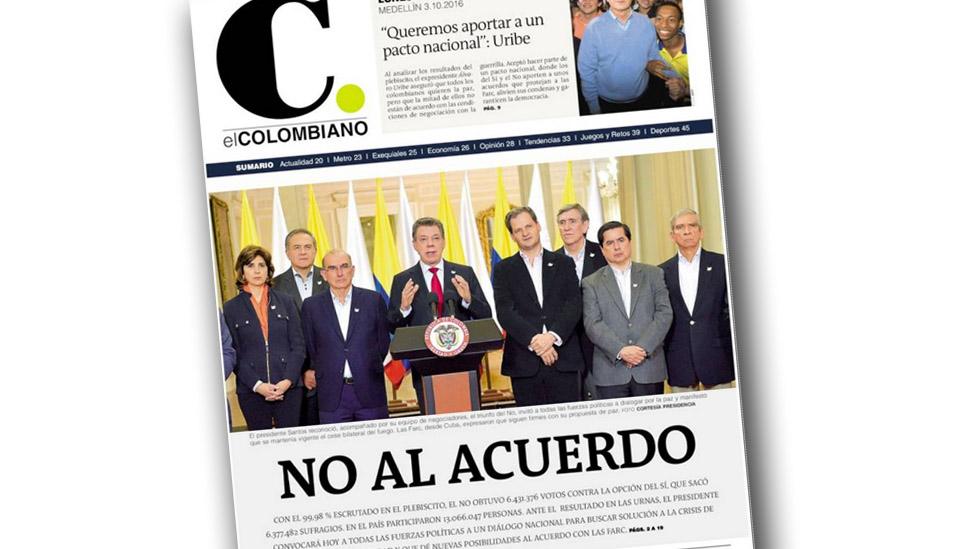
El Colombiano says President Juan Manuel Santos is seeking a national dialogue to deal with the crisis over the "No" vote
On its front page, El Heraldo, external wrote: "The Agreement with the Farc rejected by a divided Colombia".
The papers also carried a quote from President Juan Manuel Santos saying: "I will not give up; I will keep searching for peace until the last minute of my administration."
Other front pages voiced the deep uncertainty left by the vote. "And what comes now?" asked El Universal, external. "Now what?" wondered El Diario/La Tarde, external on its front page.
Despite the uncertainty and frustration reflected in the headlines, some outlets were more positive, focussing on the possibility that a national consensus could still be reached.
"Opportunity to seek national unity," was newspaper La Republica, external's headline. The business daily Portafolio, external took a similar view: "The option of a great national accord emerges."
Independent news website La Silla Vacia, external meanwhile concentrated on the power of the man behind the "no" campaign: "Uribe is still king".
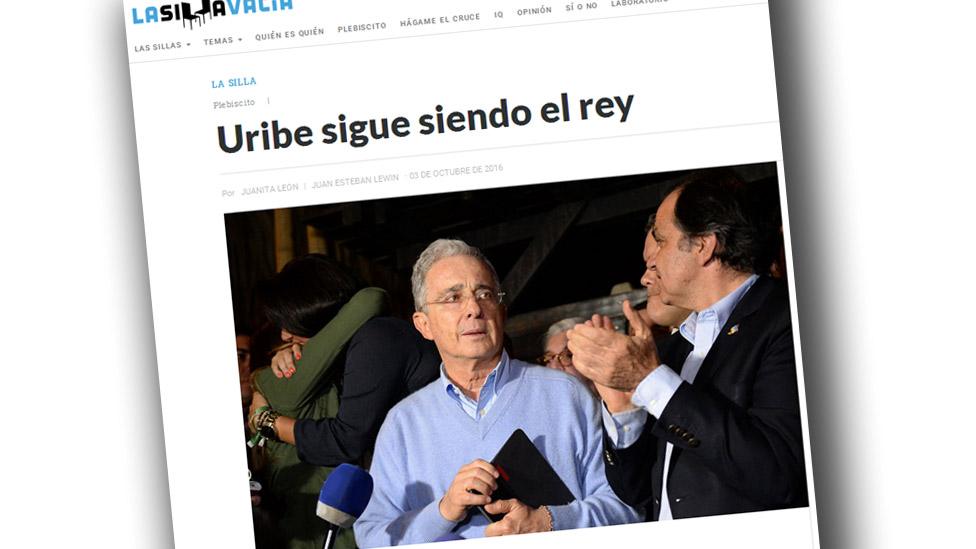
The newspaper La Silla Vacia says former president Alvaro Uribe, the main opponent of the deal, is still king
RCN Noticias, external said on its website: "Santos: 'the bilateral and definitive cease fire continues in place", while Noticias Caracol, external ran a story quoting former Vice-President and "no" campaigner Francisco Santos saying: "The process should continue and the Farc should be given guarantees."
Caracol Radio, external's main story on its webpage said: "Santos and the Unity [National Unity party] are looking for reconciliation with Uribe supporters."
Colombian radio network W Radio, external took a different approach on its website by quoting Farc leader Timochenko saying "peace is still possible".
National radio network La FM, external said: "Colombia enters uncertainty after "no" wins the vote."
BBC Monitoring, external reports and analyses news from TV, radio, web and print media around the world. You can follow BBC Monitoring on Twitter , externaland Facebook, external.
- Published3 October 2016
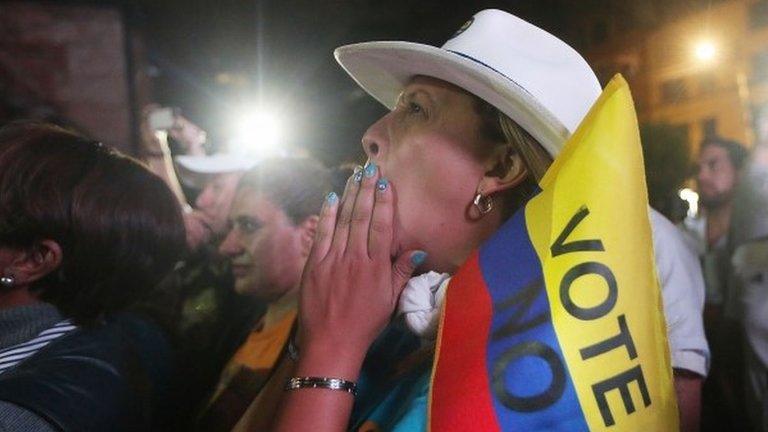
- Published27 September 2016
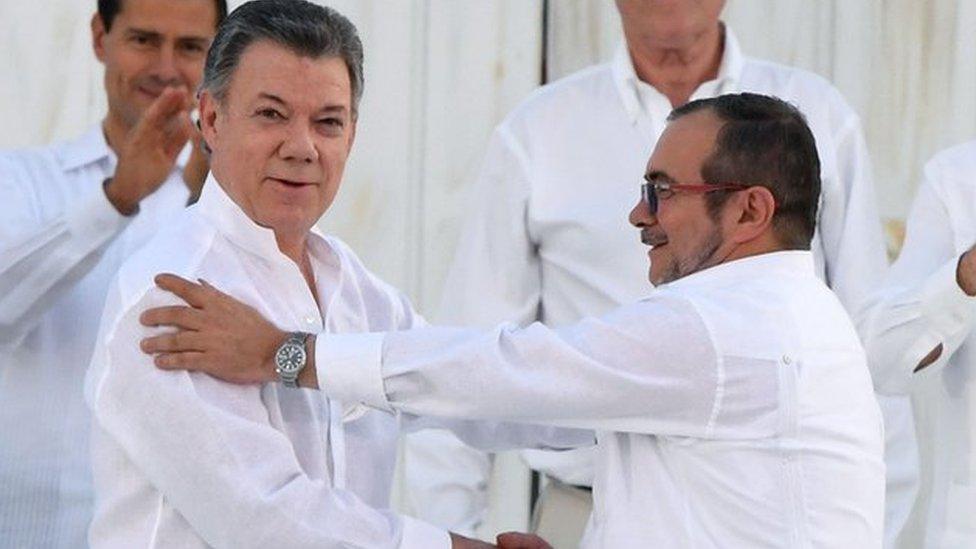
- Published14 February 2023
